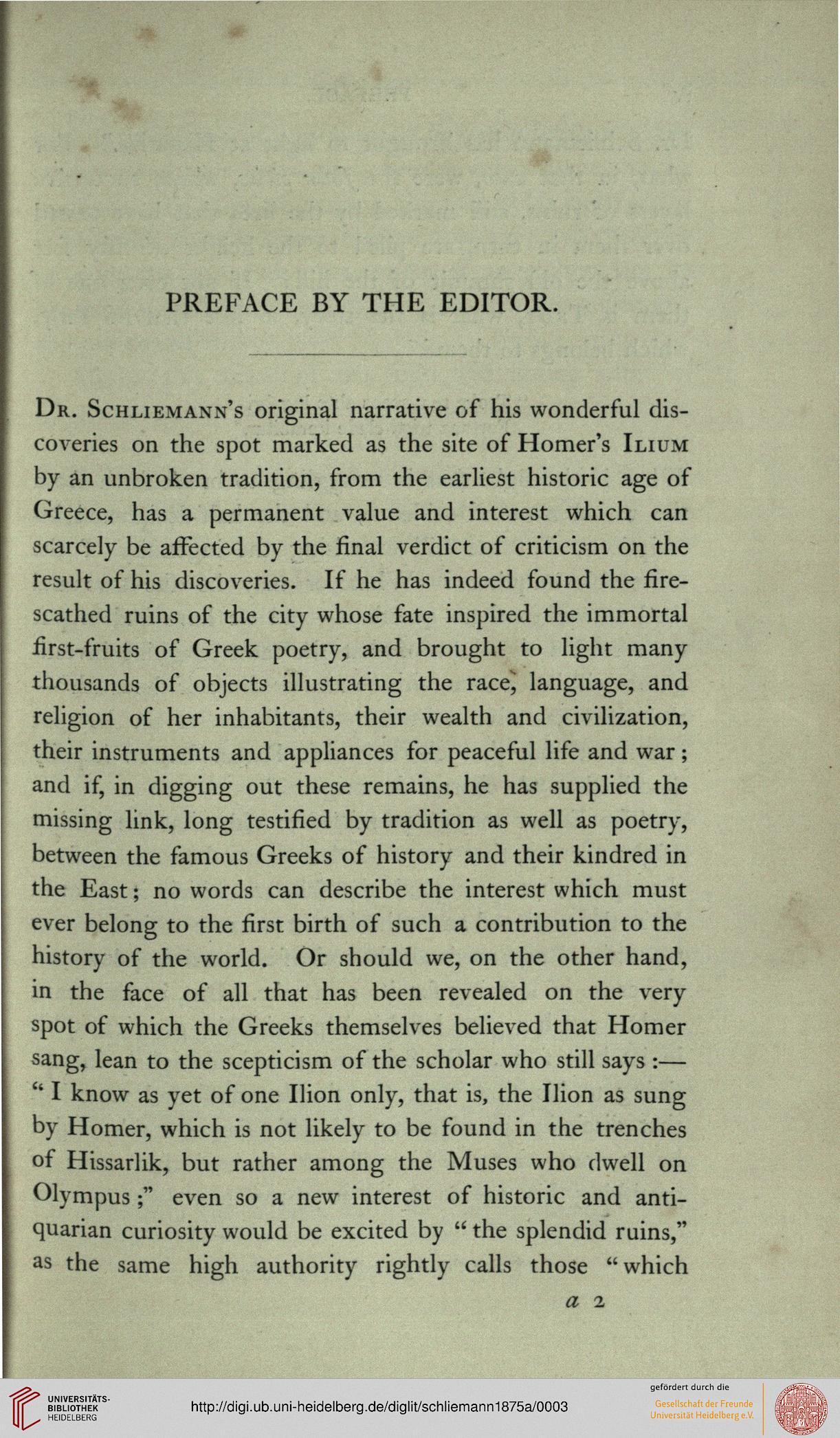PREFACE BY THE EDITOI
Dr. Schliemann's original narrative of his wonderful dis-
coveries on the spot marked as the site of Homer's Ilium
by an unbroken tradition, from the earliest historic age of
Greece, has a permanent value and interest which can
scarcely be affected by the final verdict of criticism on the
result of his discoveries. If he has indeed found the fire-
scathed ruins of the city whose fate inspired the immortal
first-fruits of Greek poetry, and brought to light many
thousands of objects illustrating the race^ language, and
religion of her inhabitants, their wealth and civilization,
their instruments and appliances for peaceful life and war;
and if, in digging out these remains, he has supplied the
missing link, long testified by tradition as well as poetry,
between the famous Greeks of history and their kindred in
the East; no words can describe the interest which must
ever belong to the first birth of such a contribution to the
history of the world. Or should we, on the other hand,
in the face of all that has been revealed on the very
spot of which the Greeks themselves believed that Homer
sang, lean to the scepticism of the scholar who still says :—
" I know as yet of one Uion only, that is, the Uion as sung
by Homer, which is not likely to be found in the trenches
of Hissarlik, but rather among the Muses who dwell on
Olympus ;" even so a new interest of historic and anti-
quarian curiosity would be excited by " the splendid ruins,"
as the same high authority rightly calls those "which
a 2
Dr. Schliemann's original narrative of his wonderful dis-
coveries on the spot marked as the site of Homer's Ilium
by an unbroken tradition, from the earliest historic age of
Greece, has a permanent value and interest which can
scarcely be affected by the final verdict of criticism on the
result of his discoveries. If he has indeed found the fire-
scathed ruins of the city whose fate inspired the immortal
first-fruits of Greek poetry, and brought to light many
thousands of objects illustrating the race^ language, and
religion of her inhabitants, their wealth and civilization,
their instruments and appliances for peaceful life and war;
and if, in digging out these remains, he has supplied the
missing link, long testified by tradition as well as poetry,
between the famous Greeks of history and their kindred in
the East; no words can describe the interest which must
ever belong to the first birth of such a contribution to the
history of the world. Or should we, on the other hand,
in the face of all that has been revealed on the very
spot of which the Greeks themselves believed that Homer
sang, lean to the scepticism of the scholar who still says :—
" I know as yet of one Uion only, that is, the Uion as sung
by Homer, which is not likely to be found in the trenches
of Hissarlik, but rather among the Muses who dwell on
Olympus ;" even so a new interest of historic and anti-
quarian curiosity would be excited by " the splendid ruins,"
as the same high authority rightly calls those "which
a 2





